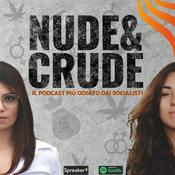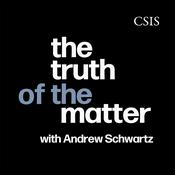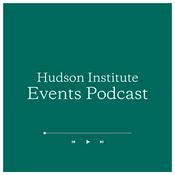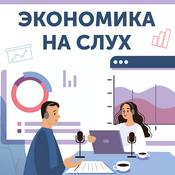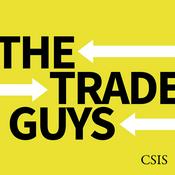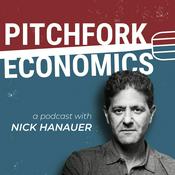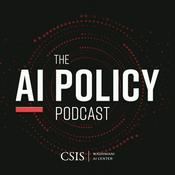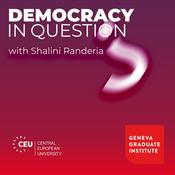39 episodi
- Our own optimist economist Kathryn Anne Edwards worked on a research project several years ago to measure income inequality. Its massive headline number has taken on a life of its own in columns, talking points, memes. We explain how Kathryn and co-author Carter Price managed to answer this question: What would have happened to Americans’ incomes if they’d grown at the same rate as the U.S. economy overall? Spoiler alert: 90% of us would be a lot better off.
Read the working paper Kathryn co-wrote in 2020: Trends in Income From 1975 to 2018 and Carter Price’s update going through 2023.
Watch video clips from this episode at the Optimist Economy YouTube channel.
Follow us on Instagram at @optimist_economy.
Follow us on TikTok at @optimist_economy.
Read some stuff on our Substack.
Consume leisure in an O.E. hat or shirt: https://merch.ambientinks.com/collections/optimisteconomy
Support us and our tireless editors and producers by donating at https://optimisteconomy.com
Send your economic questions or executive orders to [email protected] - Listener Max did his grad thesis on pay transparency laws in Colorado and found that they narrowed the gender wage gap by 8 cents on the dollar. But some big-name economists reported that such laws can actually reduce wages. So what’s the deal? Kathryn’s answer during our October Q&A was so overlong and multipart that we jokingly called it, “The Max Show.” So here it is, as a mini-episode.
Holiday shopping for the optimists in your life? Check out our shirts and hats at optimisteconomy.com - Your drunk uncle calls Social Security a Ponzi scheme. Your crypto-bro cousin thinks tariffs make China pay. Your grandfather blames working women for tanking wage growth. Economist Kathryn Edwards takes on a dozen hostile dinner-table challenges to help optimists everywhere prepare for dinner table debate. Robin plays every annoying relative you've ever argued with. Pass the [expletive] gravy.
Ready to rep Optimist Economy with a shirt, hat or tote bag? Hit up our new website and merch store at optimisteconomy.com
Take the listener survey first to get a code for a free Original Optimist sticker: https://tinyurl.com/op-econ-survey - Optimist Economy got its start almost exactly one year ago with a phone call that began, "Hear me out…" Thirty-two episodes later we ask, “What have we done?” Mostly we conditioned ourselves to keep our eye on the ball – the better U.S. economy and future that are possible – through a lot of very bad news days. In the background, we both moved. Kathryn kept a lot of pregnancy symptoms hidden. We incorporated a nonprofit. And somehow, we managed to drop a new episode every Tuesday. Thanks to all our listeners for being our spiritual sponsors on this journey.
Take Our Listener Survey!https://tinyurl.com/op-econ-survey
Altri podcast di Governo
Podcast di tendenza in Governo
Su Optimist Economy
Economist Kathryn Anne Edwards and co-host Robin Rauzi talk about the fundamentals of the economy and how to build a better future one problem and solution at a time. Our premise is that the United States has remarkable economy — and yet for tens of millions of Americans it is not performing up to its potential. It could be more open to aspiring workers, less hostile to change, safer for workers, less risky for retirees, and so on.✨ Support the podcast at: optimisteconomy.com ✨Ask questions or share your economic worries with us at: [email protected]
Sito web del podcastAscolta Optimist Economy, Nude & Crude - Istituto Liberale e molti altri podcast da tutto il mondo con l’applicazione di radio.it
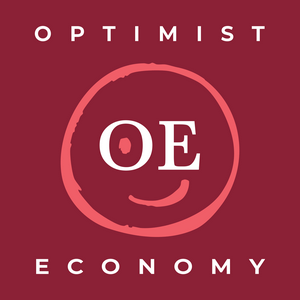
Scarica l'app gratuita radio.it
- Salva le radio e i podcast favoriti
- Streaming via Wi-Fi o Bluetooth
- Supporta Carplay & Android Auto
- Molte altre funzioni dell'app
Scarica l'app gratuita radio.it
- Salva le radio e i podcast favoriti
- Streaming via Wi-Fi o Bluetooth
- Supporta Carplay & Android Auto
- Molte altre funzioni dell'app


Optimist Economy
Scansione il codice,
scarica l'app,
ascolta.
scarica l'app,
ascolta.

